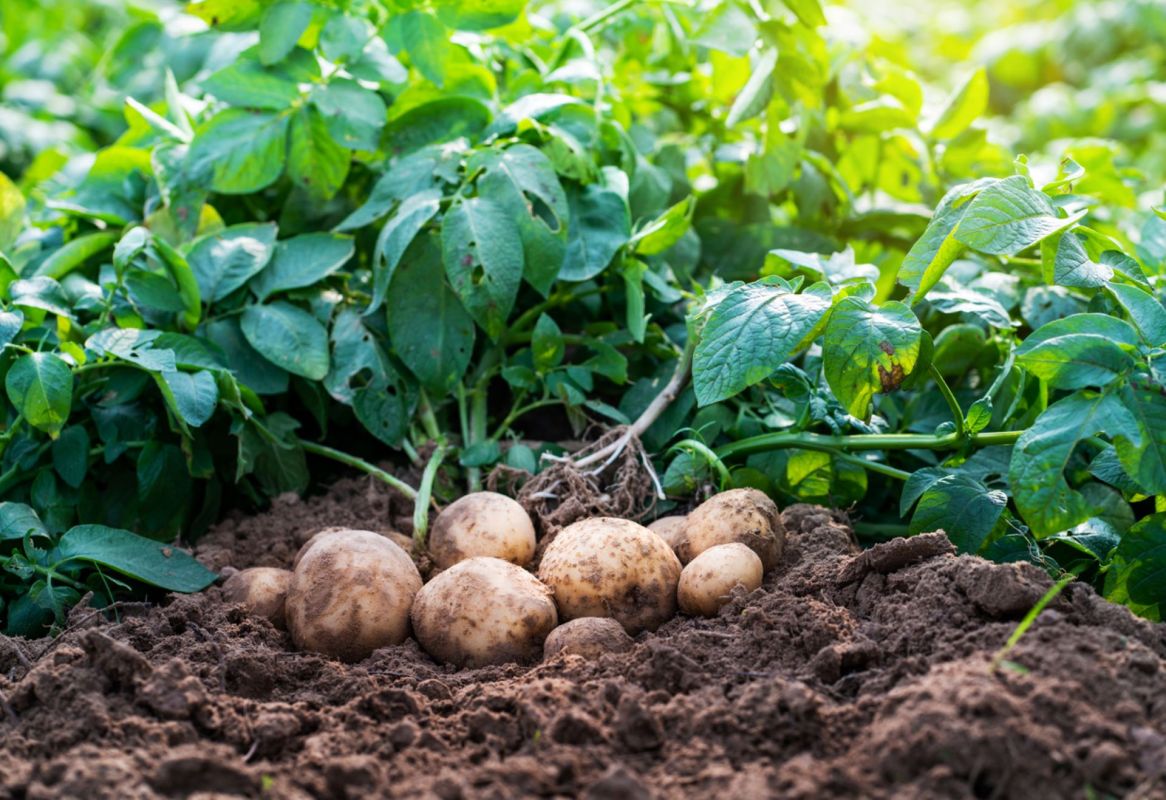While most of us likely grab what we need at the store with little thought to what — and who — it took to get it there, one group of people think of little else than where the food comes from and how to keep it coming.
Many of our favorite foods and pantry staples — olive oil, pizza and pasta, and hazelnuts, to name a few — are at risk from disease and the effects of Earth's rising temperatures. As reported by the BBC, the "seed guardians" of Potato Park in the Andes are trying to save them.
Over 1,300 potato varieties are found growing in the Andes mountains. Now, aside from providing nourishment and playing an important cultural role to the local population, the potatoes must play the part of hero alongside them, helping to ensure the crops can adapt to the challenges caused by a rapidly overheating planet.
Founded in 2002 by six Indigenous communities, Potato Park is located near Pisac, Peru, and works to preserve the genetic diversity of potatoes grown in the region and the cultural heritage of the people that grow them, according to the BBC.
Along with the potatoes, other native crops like maize and quinoa are also part of the work, and it is all a bigger effort to find ways of preserving and adapting valuable food plants worldwide.
The farmers vary planting locations and harvest several times annually within the almost 10,000-hectare (nearly 40 square miles) reserve.
As well as preserving food varieties that may otherwise be lost and the agricultural knowledge and traditions involved in high-altitude growing which have been developed and passed on over thousands of years — farmers are testing which of the existing varieties can best adapt to the kind of extreme conditions — like floods, fires, and extreme heat — that are expected to increase as global temperatures rise.
Seed banks are viewed as the primary protectors of crop diversity, and while important, these small-scale growers are working to keep thousands of rare and unusual crop varieties alive.
Growing a diverse range of varieties of a particular crop was once standard practice, but the advent of breeding "improved" varieties of staple crops led many farmers to swap locally adapted varieties with modern versions.
"There have been profound transformations in agriculture, and there has been loss of crop diversity, that's incontrovertible," Helen Anne Curry, a professor in the history of technology at Georgia Tech, told the BBC.
The in situ conservation like that in Potato Park further allows for the creation of new varieties better adapted to real, local conditions as opposed to conditions within a lab — meaning better adapted to the changes brought by a changing planet.
"There's so much built into a lot of these open-pollinated varieties already, it's a matter of being able to start growing these out and using the inherent genetics in them," said executive director of Seed Savers Exchange Mike Bollinger. "You can navigate through that with the intelligence that is already built in… as opposed to trying to use technology to create something that doesn't exist."
So, to say the least, we owe a round of applause to the farmers of Potato Park.
Join our free newsletter for easy tips to save more, waste less, and help yourself while helping the planet.







